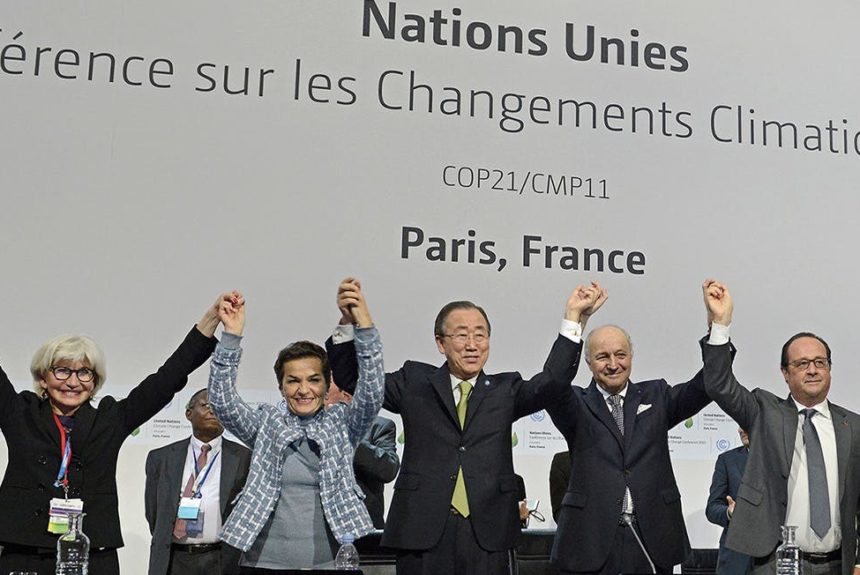In a few weeks, leaders from around the world will attend the United Nations’ 26th international climate conference in Glasgow, Scotland. Encouragingly, both Democrats and Republicans will participate in the summit and explore ways to address the risks posed by human-induced warming. To better understand what policies domestic and international officials should be championing, a glimpse into previous climate negotiations is paramount to future success.
Let’s go to the summer of 1997. Men in Black was out in theaters and a little-known company was registering the domain name www.google.com. In the upper chamber of Congress, the Senate was laying out conditions for the United States to become a signatory for an international climate treaty known as the Kyoto Protocol.
In deliberating whether the U.S. should sign and ratify the Kyoto Protocol, the Senate recognized two fundamental flaws with the proposed treaty. The first was that exempting developing countries with rapidly rising emissions would render the treaty climatically ineffective. As the Senate Resolution put it, the exemption “is inconsistent with the need for global action on climate change and is environmentally flawed.”
The second flaw was that, given the difference in commitments necessary from developed and developing countries, domestic policies and regulations could harm Americans through higher energy prices, reduced economic well-being and lost jobs. Consequently, it was the sense of the Senate that the U.S. should not be a signatory of any international climate treaty that “would result in serious harm to the economy of the United States.”
Perhaps the most stunning element of the resolution was how overwhelmingly bipartisan it was. Known as the Byrd-Hagel Resolution (after co-sponsors Robert Byrd (D-WV) and Chuck Hagel (R-NE), the resolution passed by a 95-0 vote, including a “yea” from Delaware Senator Joe Biden (though it took some convincing).
More than two decades later, the Senate’s arguments held up during the 2015 negotiations of the Paris Agreement. This time, however, negotiators tried to change it up, attempting a bottom-up approach to submit voluntary, non-binding commitments to reduce emissions. That process, however, has led to a lot of smiling handshakes with fingers crossed behind backs.
Leading up to this year’s conference, many of the obstacles to a successful agreement remain the same. Namely, many developed countries do not want to enact costly, unpopular policies that could drive energy prices higher, especially amid an energy crunch. Polling data and yellow-vest protests have shown that households are not willing to pay much to combat climate change. Furthermore, developing nations will emit well into the future and want trillions of dollars to help pay for an energy transition.
Thus, the typical result of COP meetings is a lot of well-intentioned talk but little action.
As the Senate unanimously recognized in 1997, we cannot be blind to the fact that most of the future emissions will come from developing nations. They will have environmental and climate targets submitted as part of their nationally determined contributions, but they will prioritize access to necessities, more wealth and better living standards. And rightfully so. The solution to global climate change is not to trap the world’s poorest citizens in a state of a non-growth or worse, de-growth.
>>>Three Lessons from Europe’s Energy Crunch Ahead of COP
Instead, officials in the U.S. and around the world should be ambassadors of economic freedom at COP26. Limited government, bottom-up policy reforms will turn economic policy into climate action. It will further unleash the private sector that is already heavily invested in climate solutions to grow the economy, clean up the environment and help reduce greenhouse gas emissions.
Rather than focusing solely on what to regulate and how much to spend, delegates at COP26 should be asking: where are governments getting in the way of climate innovation and what policy measures can we take to break down those barriers? From permitting reform to more open access to markets, the government-imposed obstacles are numerous.
Environmental challenges are complex. Climate change is a wicked problem. As evidenced in C3’s Free Economies are Clean Economies report, economic freedom and economic growth’s contribution to a cleaner, healthier environment is unmistakable. To mitigate the risks of climate change and better adapt to a changing climate, delegates at COP26 would be wise to embrace free enterprise solutions.
The views and opinions expressed are those of the author’s and do not necessarily reflect the official policy or position of C3.
